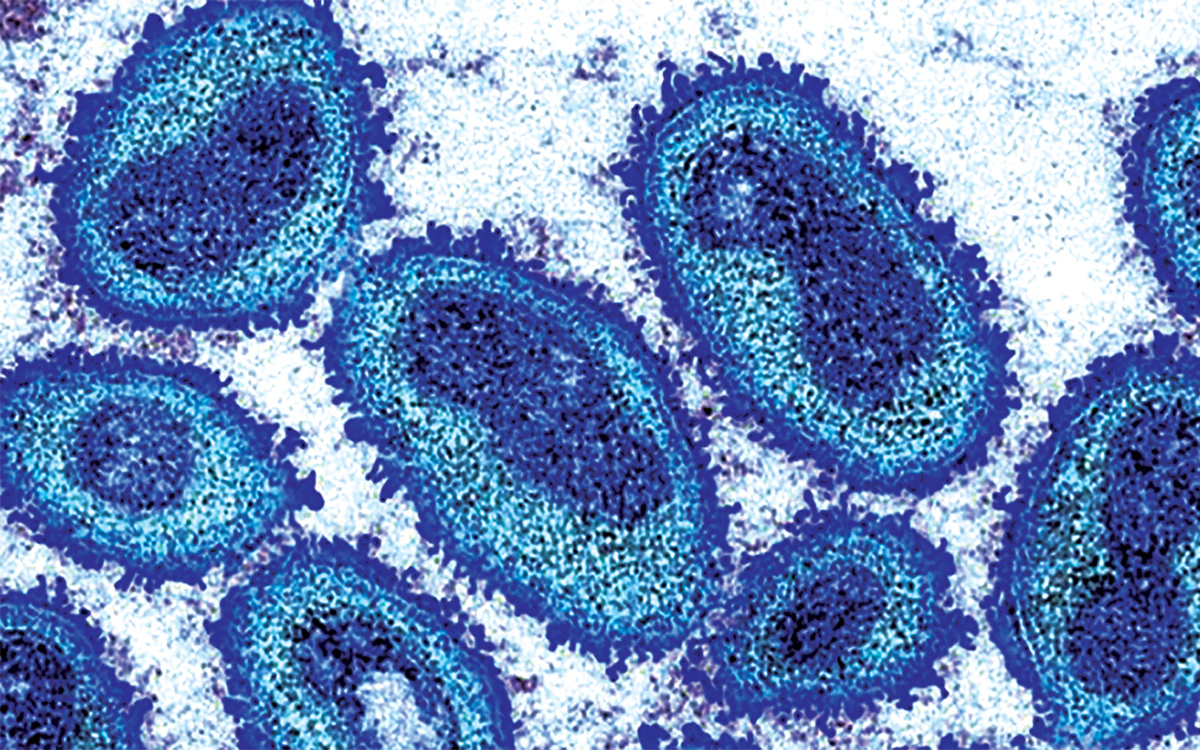Mpox isn’t gone as virus continues to spread in Africa

A public health issue that transcends identities and borders
July 25, 2025 | The Washington Blade | The Los Angeles Blade | Philadelphia Gay News
Pride is all about celebrating who we are as an LGBTQ+ community. As people. And part of that celebration is making sure we’re taking care of ourselves and looking out for one another. While Pride month may be over, the spirit (and summer) continues.
That’s why this is still an ideal time to talk about health. With so many people still coming together for events and festivities, it’s the perfect opportunity to bring health into the conversation—particularly how essential open communication is when it comes to addressing the current mpox situation.
But communication is a two-way street. Like community, providers need to address health issues like mpox with compassion, competence, and confidence. That means without moralizing, without stigma, and with the trust it takes for people to feel safe and supported when they go back to talk to their partners and friends. The community deserves knowledge and care that reflect our lives.
Mpox, formerly known as monkeypox, is a contagious virus that spreads through close contact, including sex. Though mpox is not a sexually transmitted infection, the patterns are clear: When bodies collide, especially in ways that involve skin-to-skin exposure, transmission can happen. Many people report their first symptoms showing up at sites of sexual contact.
Mpox cases have primarily been seen among sexual and social networks of gay, bisexual, and same-gender-loving men, as well as transgender and nonbinary individuals—especially those with uncontrolled HIV. It has also affected caregivers and women. Because early framing of the virus relied on language and imagery that fueled stigma — particularly toward African nations and then onto LGBTQ+ people — the name change to ‘mpox’ was a deliberate step to correct any unnecessary associations. This is a public health issue that transcends identities and borders, and it deserves a response grounded in science and dignity.
Globally, the concern is growing. In the Democratic Republic of the Congo (DRC), Clade I mpox—historically more severe—has caused more than 48,000 suspected cases and more than 1,100 deaths in 2024, many among children and immunocompromised individuals. A more transmissible subvariant, Clade Ib, has been identified and is now spreading to neighboring countries like Burundi, Kenya, Rwanda, and Uganda, where mpox had not previously circulated. In response, the Africa Centres for Disease Control and Prevention has declared a “public health emergency of continental security.” When diseases like this spread unchecked, the consequences don’t stay confined. What happens globally still affects us locally.
While mpox may not be in the headlines as often as it used to be, it hasn’t gone away. In the United States (U.S.), the Centers for Disease Control (CDC) has confirmed four recent cases of Clade I mpox in individuals with travel history to Africa between late 2024 and early 2025 detected in California, Georgia, New Hampshire, and New York. At this point, there is no evidence of further spread from those cases, and Clade II remains the primary strain circulating in the U.S. However, vaccine uptake is still lagging. Most mpox infections continue to occur among people who are either unvaccinated or only partially vaccinated. For optimal protection, the CDC recommends that those at risk receive two doses of the vaccine to help protect themselves and others from mpox in the midst of a current outbreak. However, just 15 percent of those recommended to get the mpox vaccine have received both doses—leaving significant gaps in protection heading into the summer months.
Vaccination remains one of the most effective tools we have. It not only helps protect against infection, but it can also help reduce symptoms if someone does get sick. The mpox vaccine is highly effective, but it’s a two-part series, and that second dose really matters. Ideally, it’s given at least 28 days after the first—but even if more time has passed, you can always go back at any time.
There are other ways we can all unite this summer during Pride by looking out for ourselves and each other. If you or a partner has a new or unexplained rash or just aren’t feeling right, it’s OK to pause and chat with your doctor. Pay attention to symptoms like painful sores, flu-like symptoms, or discomfort when going to the bathroom. Have open conversations with your partners. If something feels off, don’t wait — reach out to a provider you trust.
So, keep celebrating while staying informed. How we talk and listen to each other, without judgment, is still one of the most powerful ways to protect our health. Happy Pride season all year ‘round!
The National Coalition for LGBTQ Health represents the entire LGBTQ+ community, including clinicians, researchers, service providers, and advocates who serve individuals of every sexual orientation, gender, gender identity, race, ethnicity, and age, regardless of disability, income, education, and geography. The Coalition works to improve LGBTQ health and well-being through advocacy, medical and consumer education, communications, capacity building, and health services research. Learn more at healthlgbtq.org.